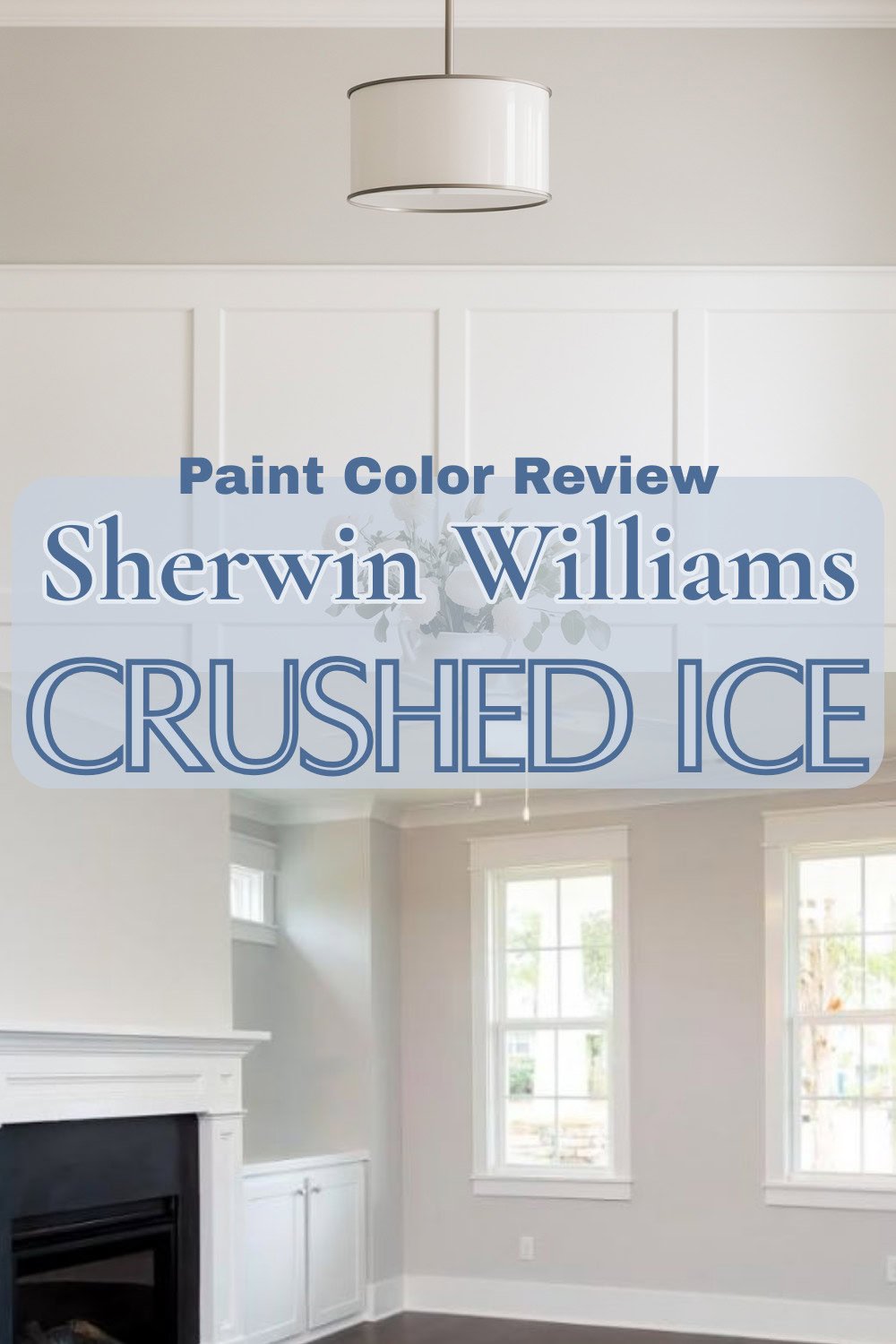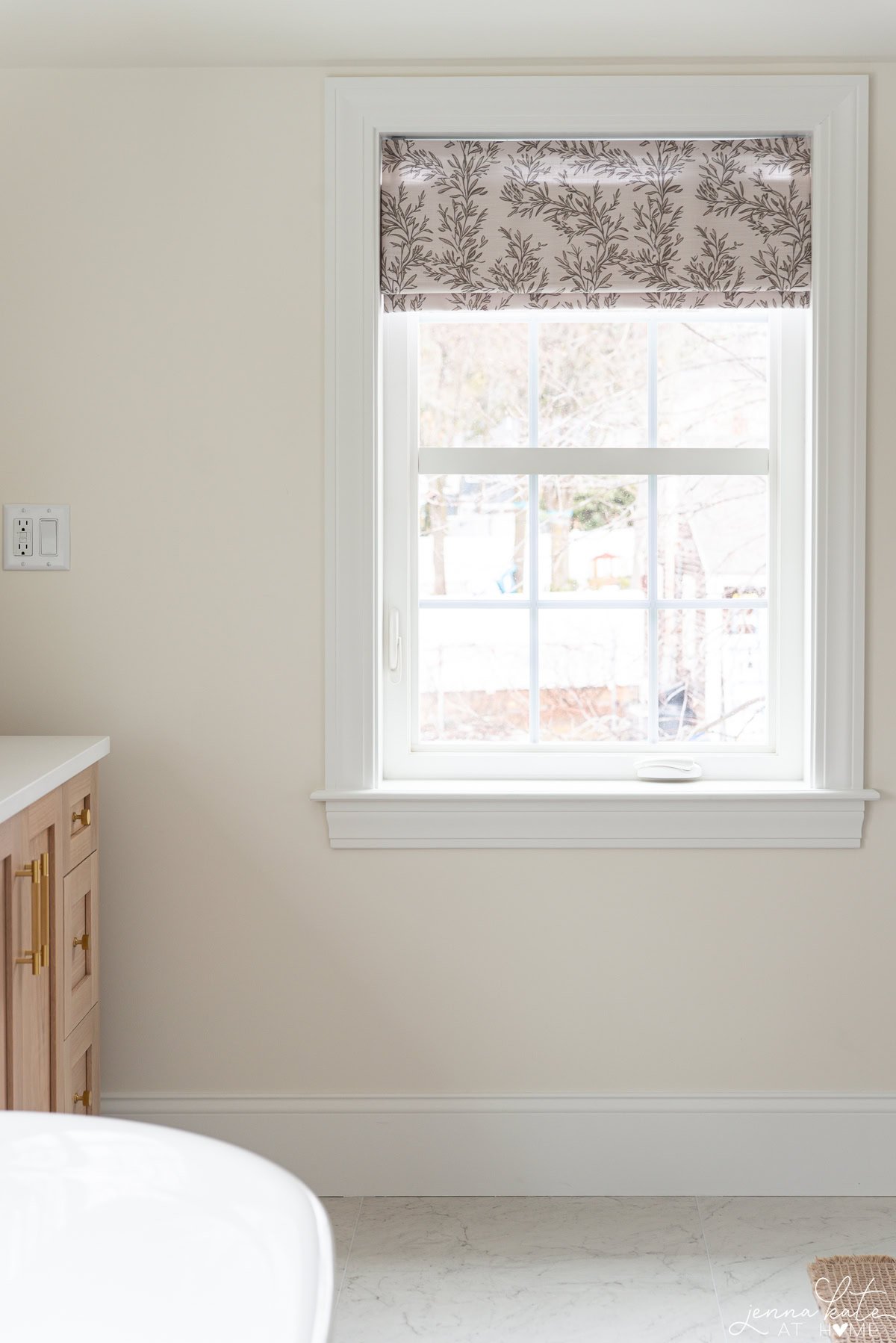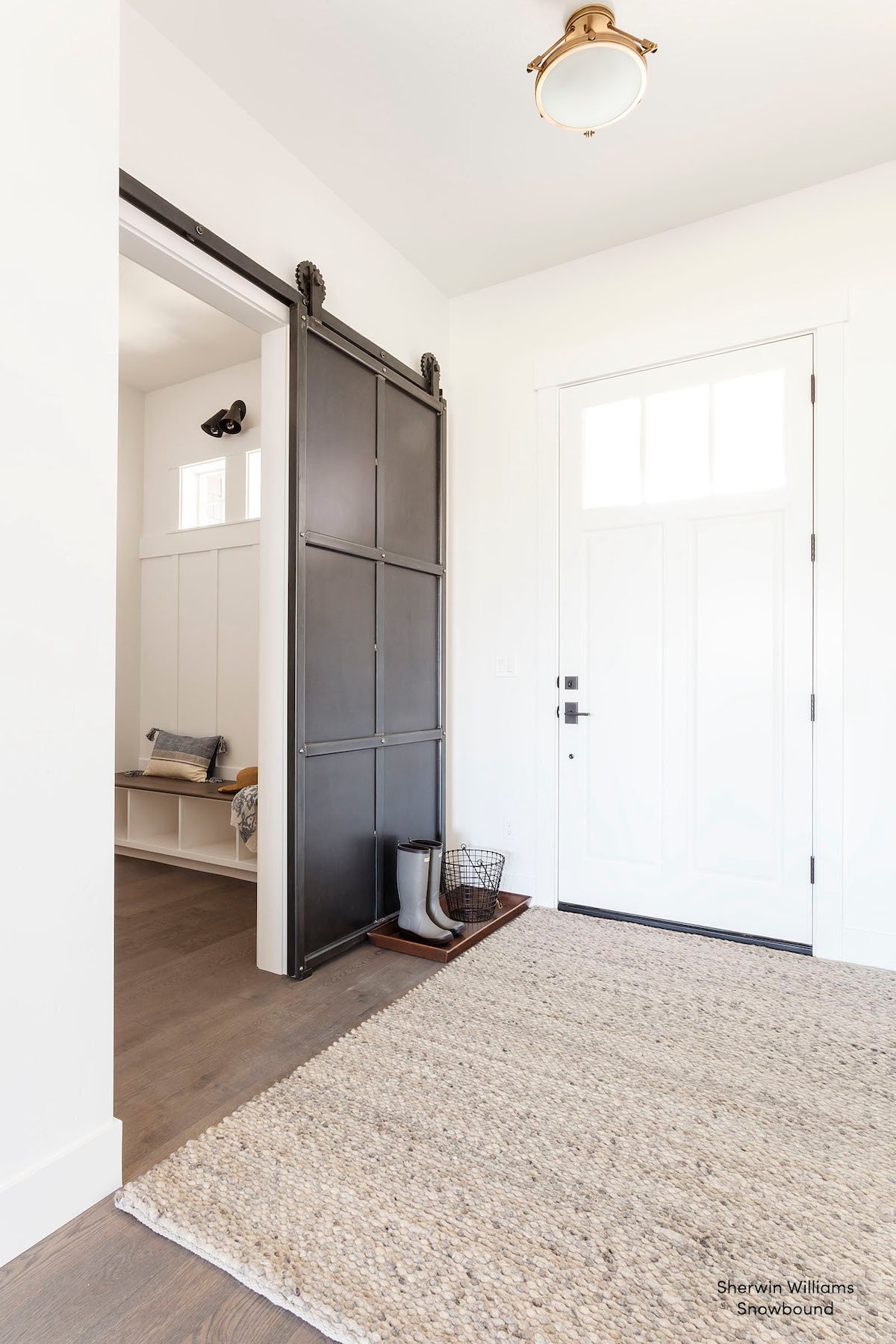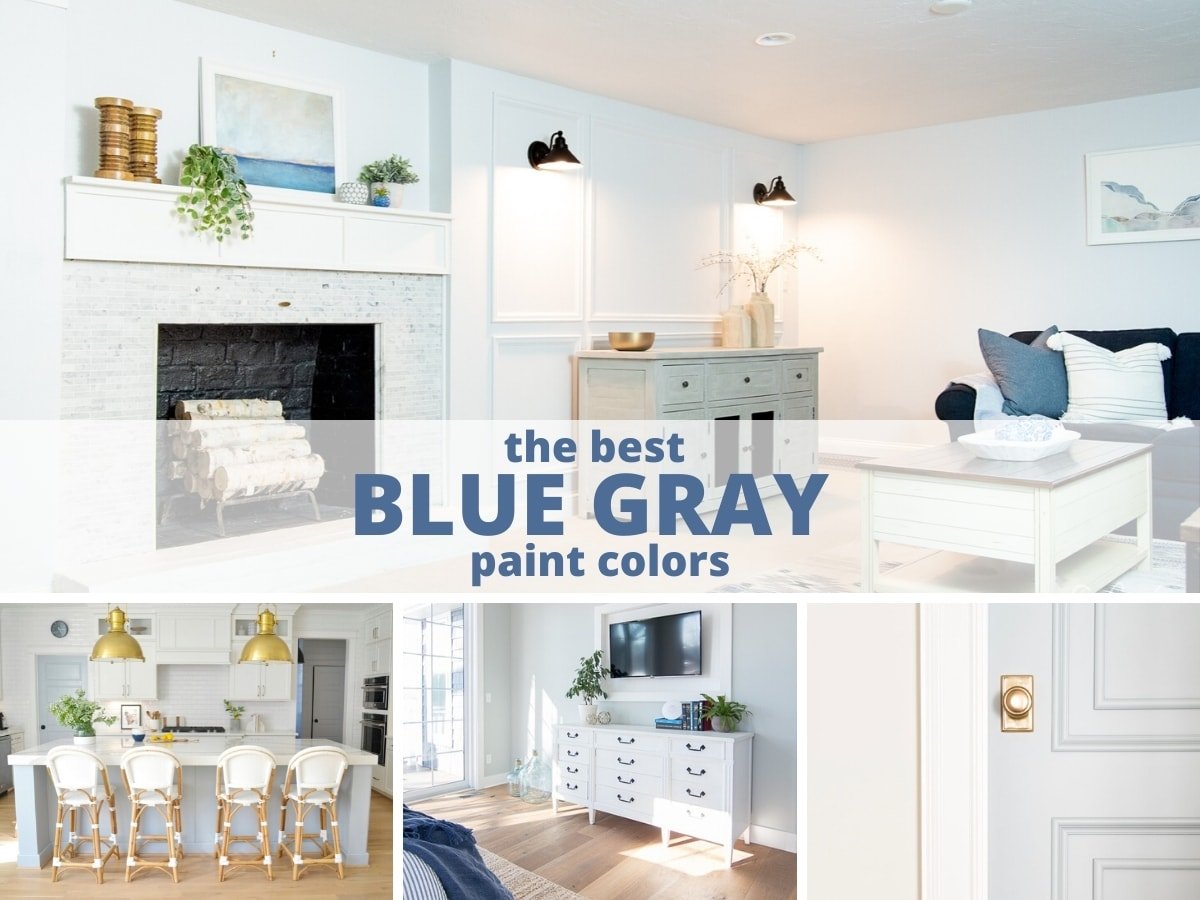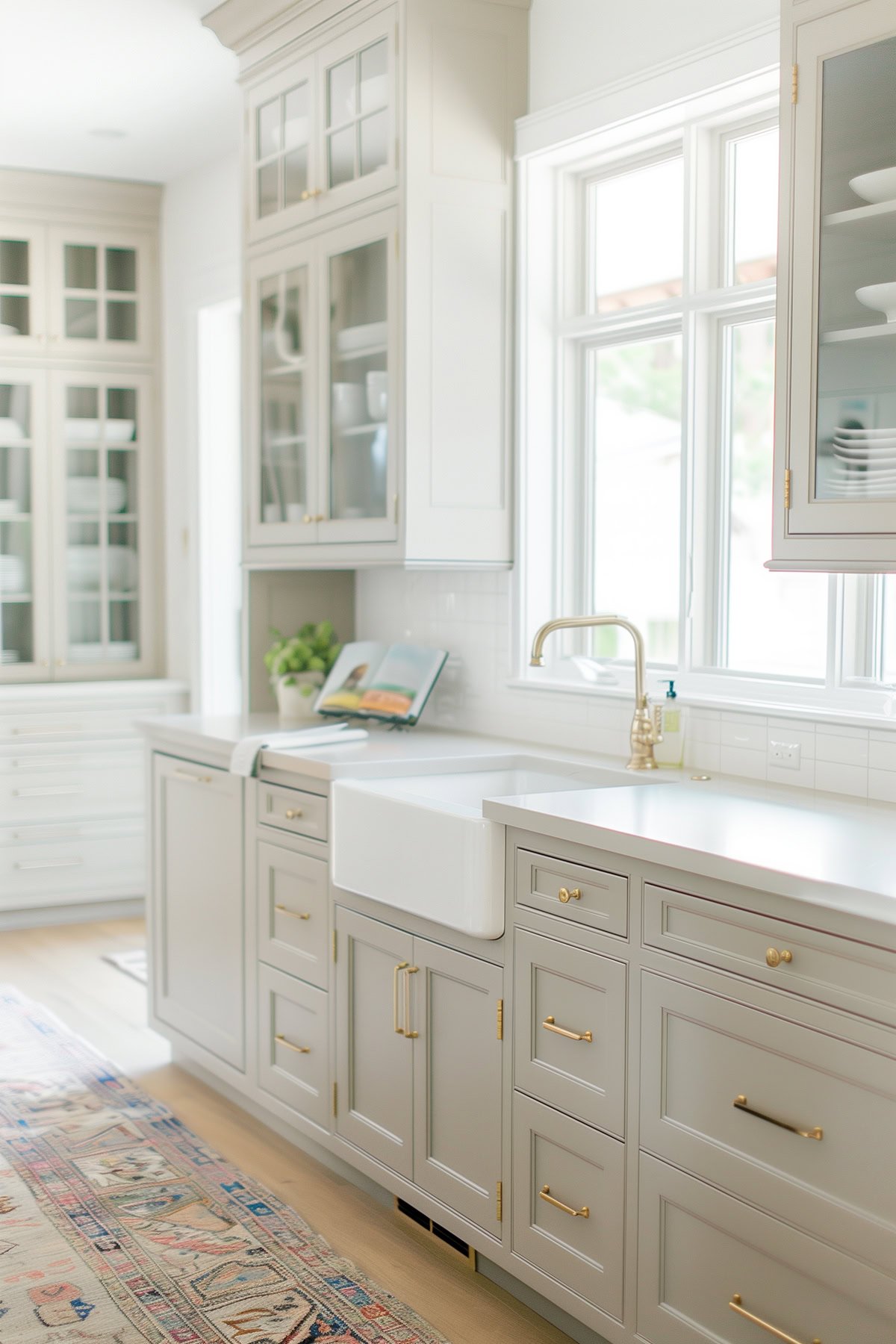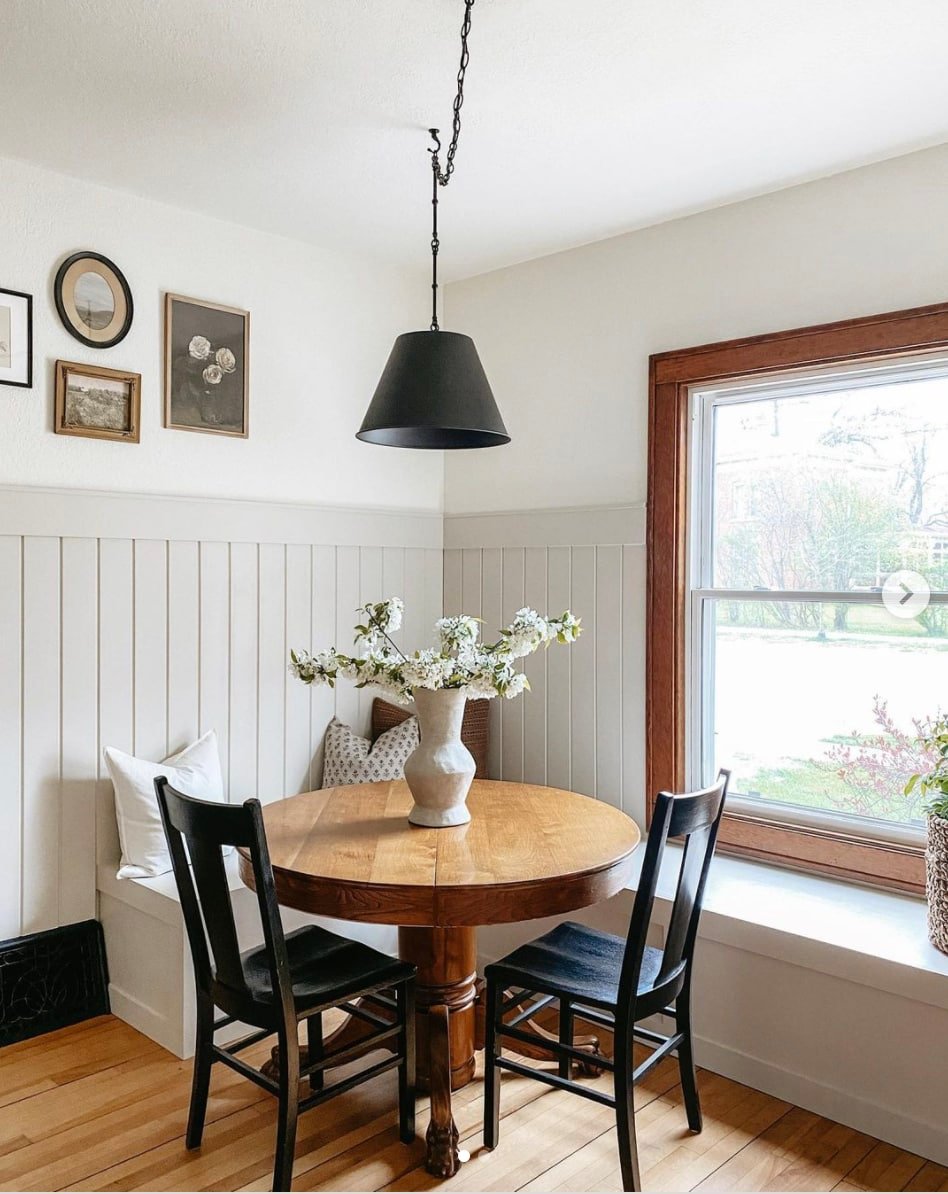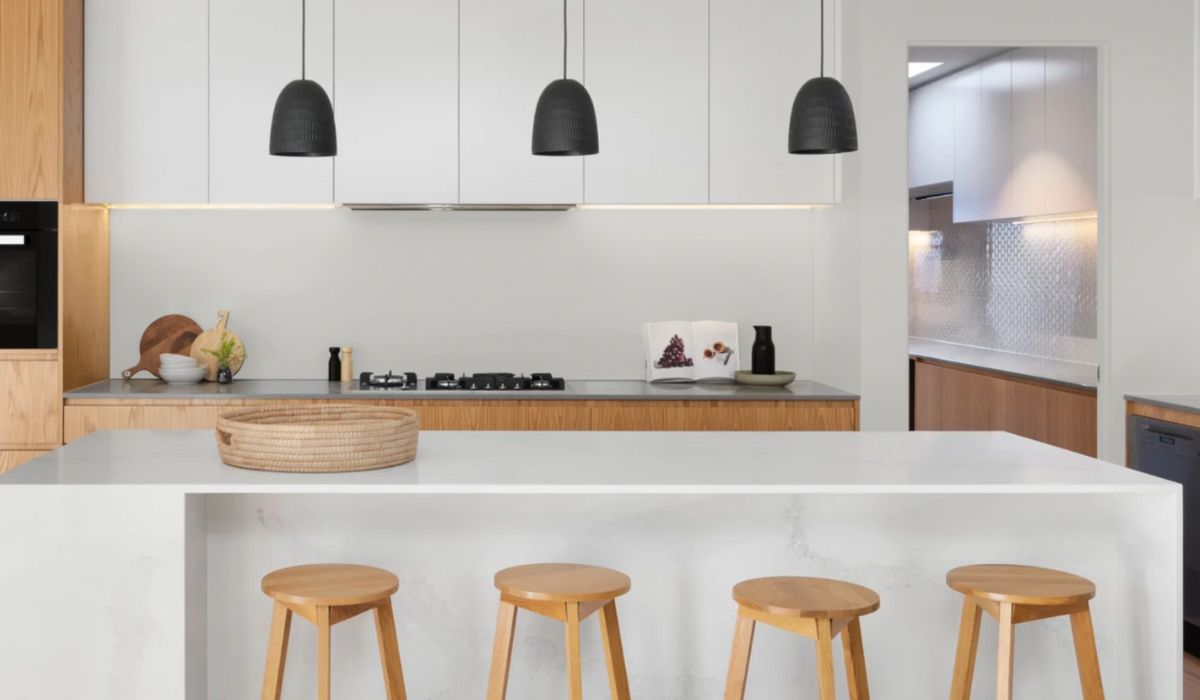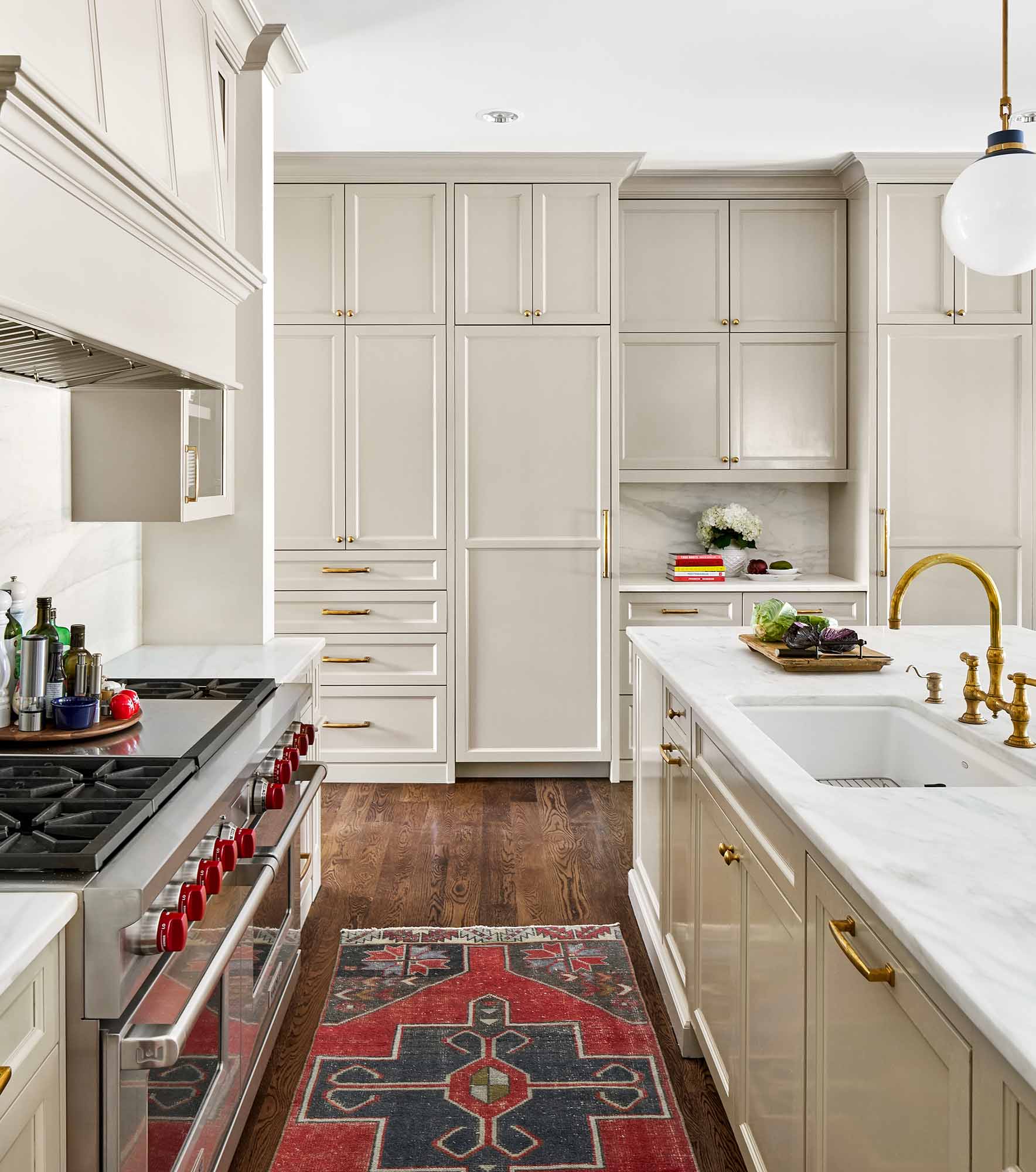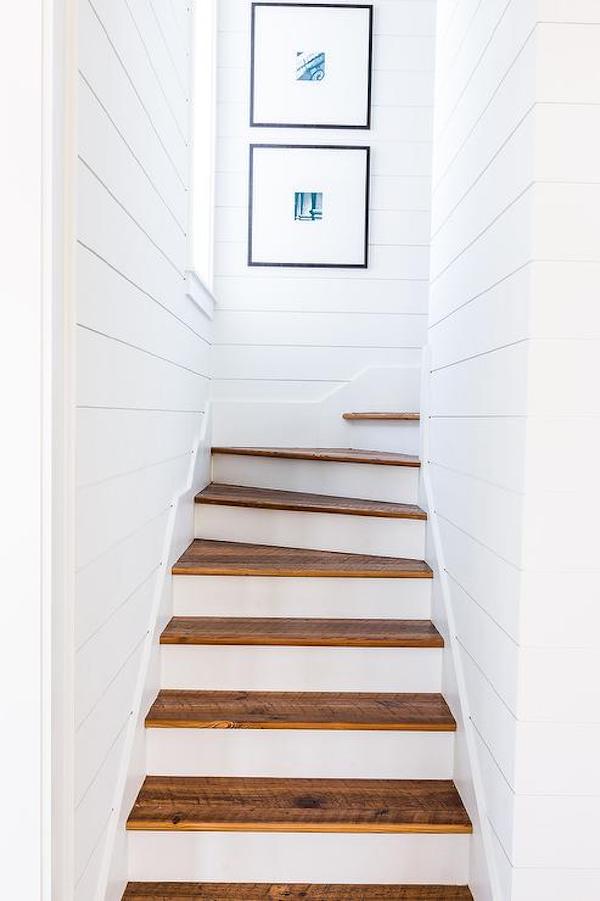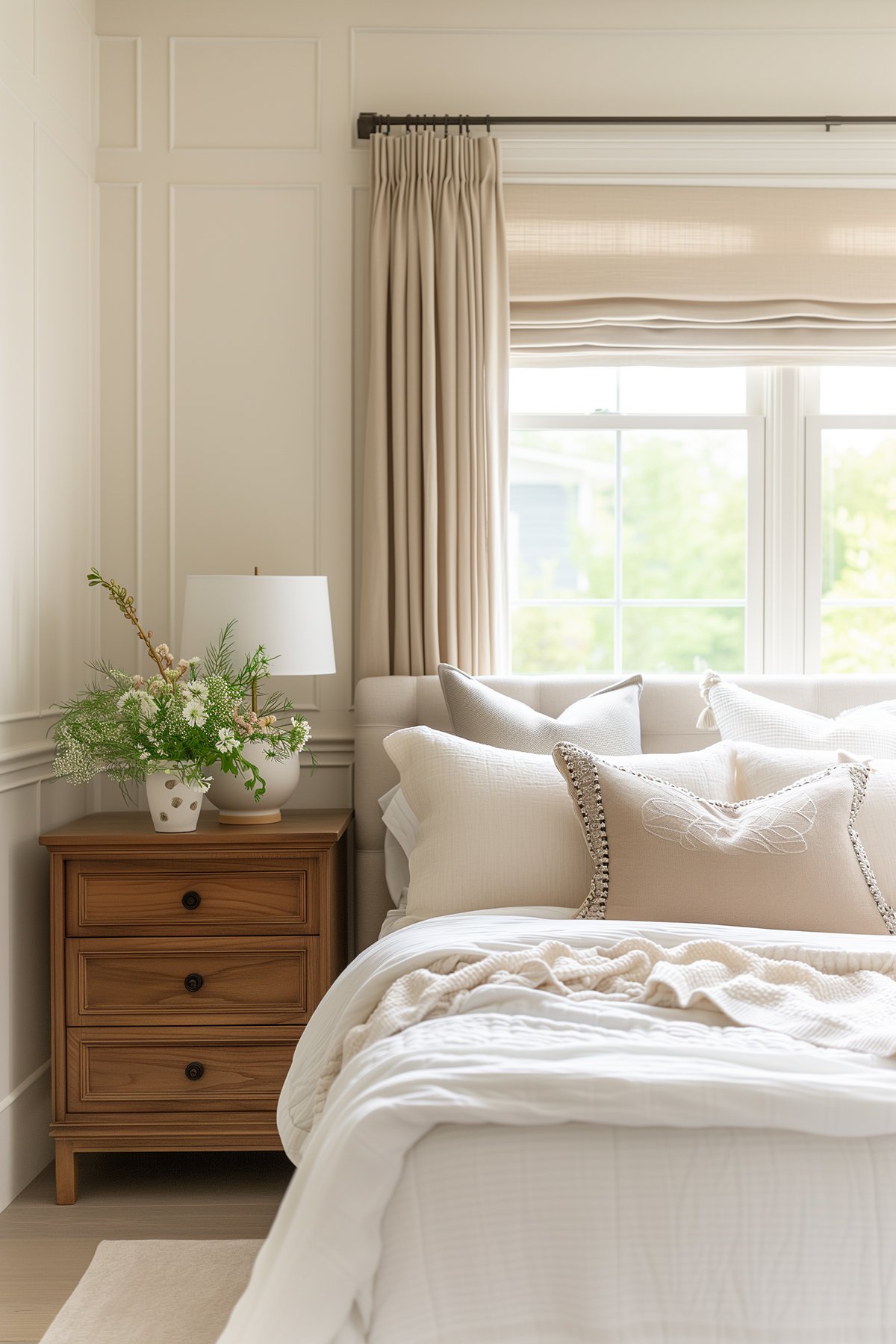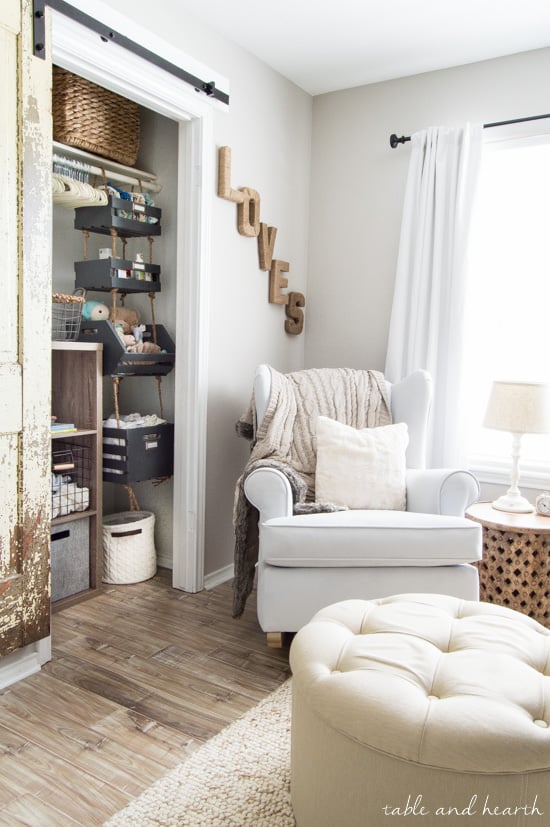Content may contain affiliate links. When you shop the links, I receive a small commission at no cost to you. Thank you for supporting my small business.
Choosing a gray paint color shouldn’t feel like a gamble. After testing dozens of grays in real homes – with real lighting quirks – I can say with confidence that Sherwin Williams Crushed Ice is one of the most underrated paint colors out there.
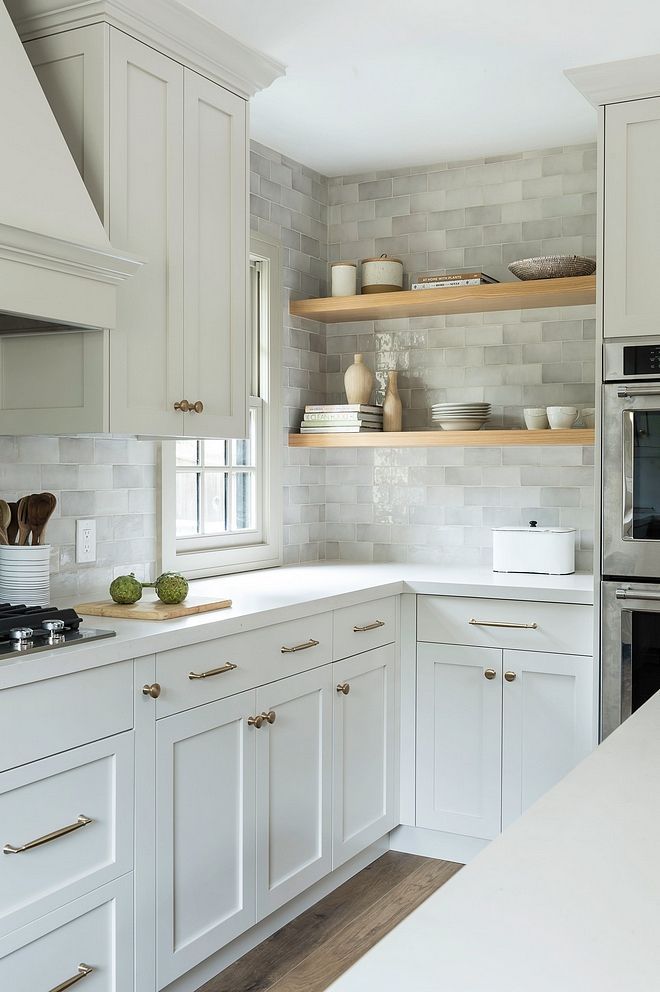
What Color Is Sherwin Williams Crushed Ice?
Crushed Ice is a soft, warm gray that walks the line between gray and greige. It has enough warmth to feel inviting, but enough gray to feel clean and modern. It doesn’t scream for attention instead, it quietly supports everything around it. If you’re looking for a neutral that isn’t stark or cold, Crushed Ice might be your perfect match.
jenna’s Tip
Intrigued by LRV? Learn all about LRV in paint colors and how it will help you choose the right color for your home.
What is the LRV of Crushed Ice?
Crushed Ice has an LRV (Light Reflectance Value) of 66, meaning it reflects a moderate amount of light. It’s considered a “light” paint color, but it’s not too close to off-white.
- In well-lit rooms, it may wash out slightly
- In dim or windowless spaces, it can look duller or more muted
What is LRV? Learn more about Light Reflectance Value and how it can make or break your color choices.
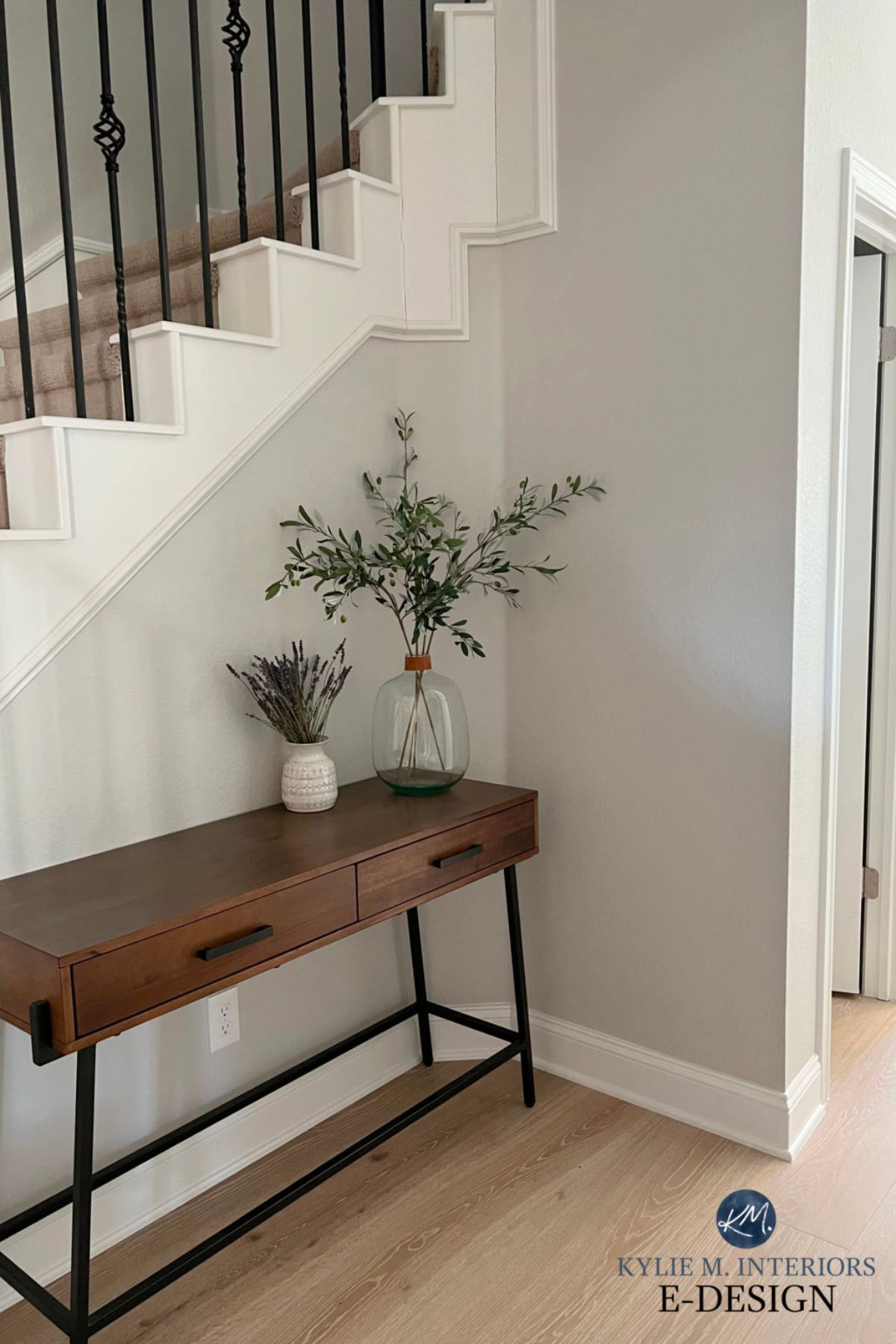
Is Crushed Ice Warm or Cool?
Crushed Ice is technically a warm gray, but its undertones and reflectivity allow it to shift slightly depending on lighting and surrounding elements.
- In northern light: it can lean cooler
- In warm southern or afternoon sun: it feels softer and warmer.
Its subtle chameleon nature makes it incredibly flexible.
What Undertones Does Crushed Ice Have?
Crushed Ice has green undertones, but they’re soft and not dominant. Depending on your lighting and fixed finishes, it may also flash blue or violet occasionally.
Why it matters: These undertones help Crushed Ice pair beautifully with many white quartz countertops, light wood tones, and even some marble patterns.
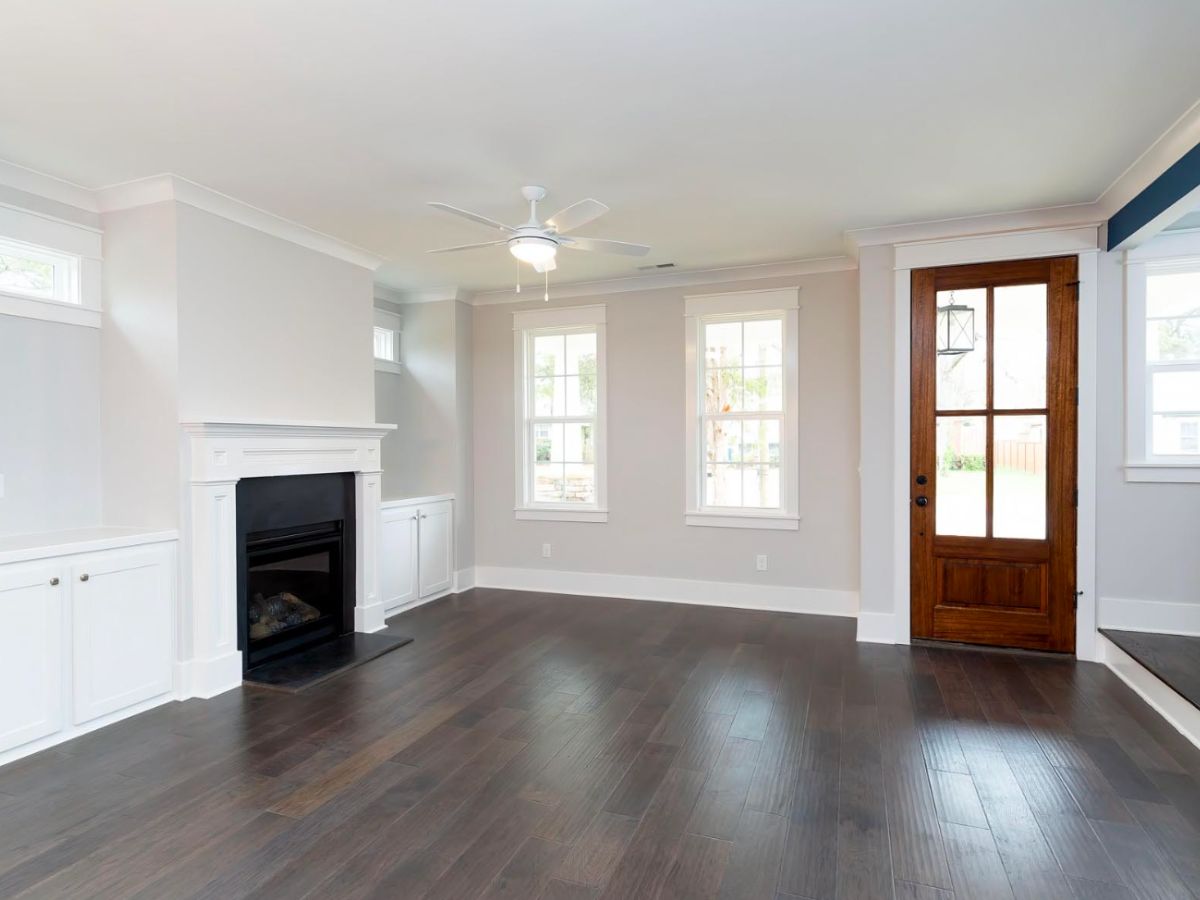
How Does Lighting Affect Crushed Ice?
Lighting plays a huge role in how Crushed Ice shows up. Here’s how it behaves:
- North-Facing Rooms: The color appears slightly cooler and grayer
- South-Facing Rooms: Warmer and more inviting
- East-Facing Rooms: Warm in the morning, cool in the afternoon
- West-Facing Rooms: Cool in the morning, warm by sunset
Try painting swatches on multiple walls and observing throughout the day before committing.
Don’t Forget…
Don’t forget – no matter what you’ve read or photos you’ve seen online, it’s really important to sample paint colors in your home before committing!
Samplize provides real paint samples that are easy to move around your home, and cheaper than buying a gazillion paint pots! It’s the only way I buy paint samples.
Where to Use Crushed Ice (And Where Not To)
Best Rooms:
- Living Rooms
- Bedrooms
- Entryways and Hallways
- Dining Rooms
- Home Offices
Avoid Using On:
- Exterior walls in direct sunlight (can appear overly light)
- Kitchen cabinets (can look too pale or washed out)
- Very dark rooms with no natural light (may look dingy)
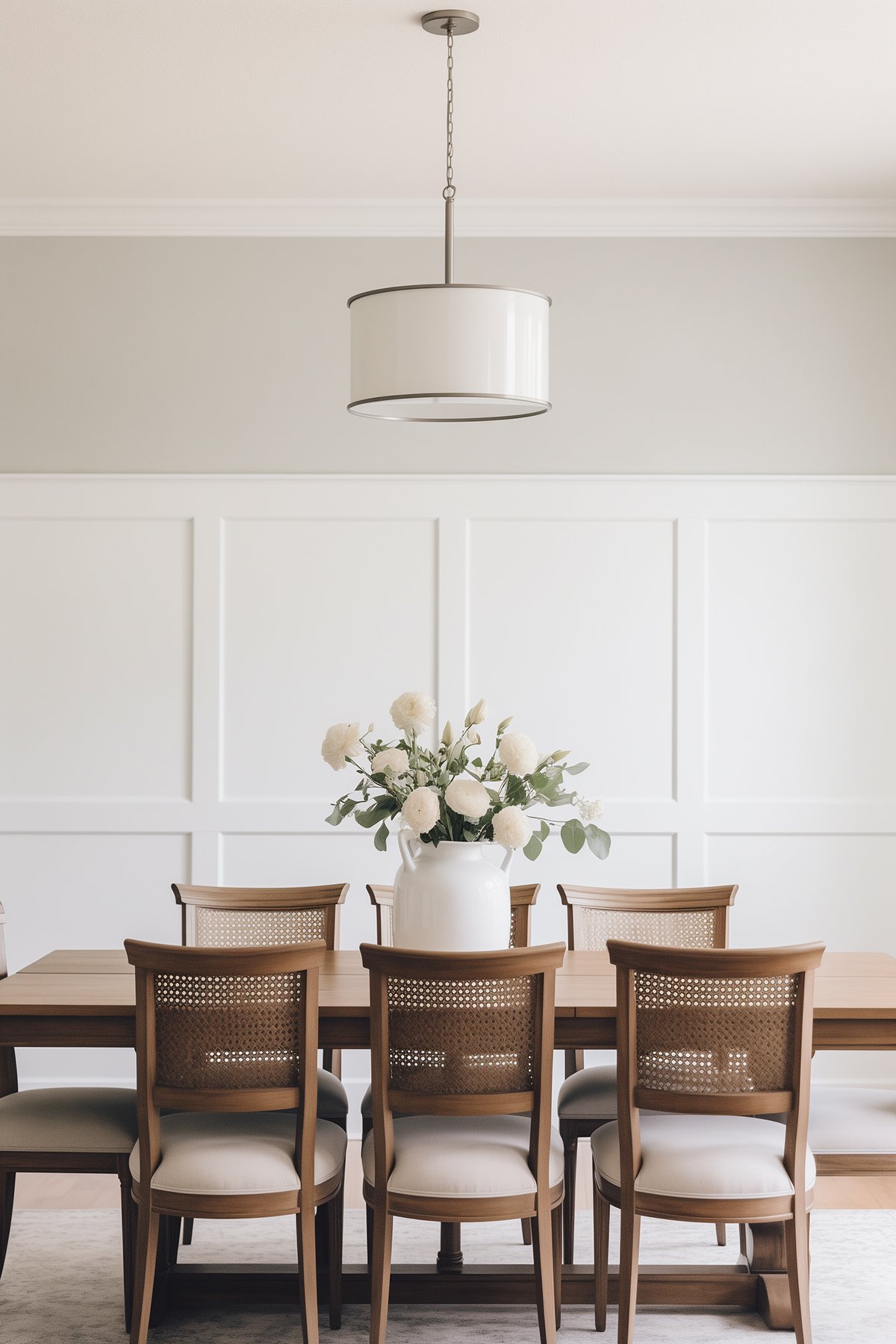
What Trim Colors Look Best with Crushed Ice?
Pair Crushed Ice with crisp whites for a clean contrast:
- SW Pure White – soft and clean, perfect for walls and trim
- SW High Reflective White – sharp and modern
- SW Extra White – cool and crisp
Skip creamy or yellow-based whites – they may clash with its undertones.
Coordinating Colors & Whole House Palette
These colors create a serene and cohesive palette when paired with Crushed Ice:
- SW Sea Salt – muted green-gray, perfect for baths and bedrooms
- SW Drift of Mist – a greige that works well in adjoining rooms
- SW Agreeable Gray – another warmer greige that complements Crushed Ice well
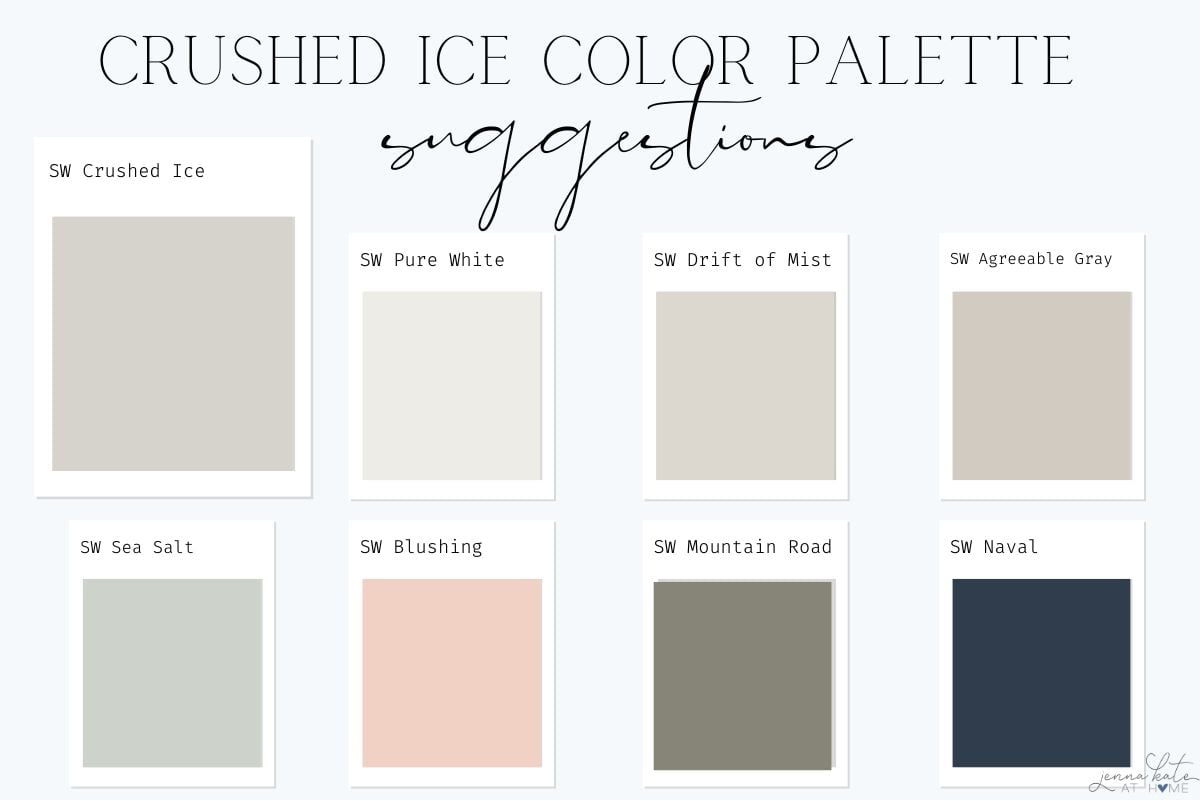
Whole House Palette Idea:
- Main Walls: SW Crushed Ice
- Bedrooms/Baths: SW Sea Salt
- Hallways: SW Agreeable Gray or Drift of Mist
- Trim: SW Pure White
- Accent: SW Naval or SW Mountain Road
- Little Girl’s Room: SW Blushing (could also be a pretty front door color!)
What is a Benjamin Moore Equivalent to Crushed Ice?
Check out Benjamin Moore Moonshine for a similar color to Crushed Ice. It’s a very similar gray, however it does have a slight green undertone.
SW Crushed Ice vs. SW Big Chill
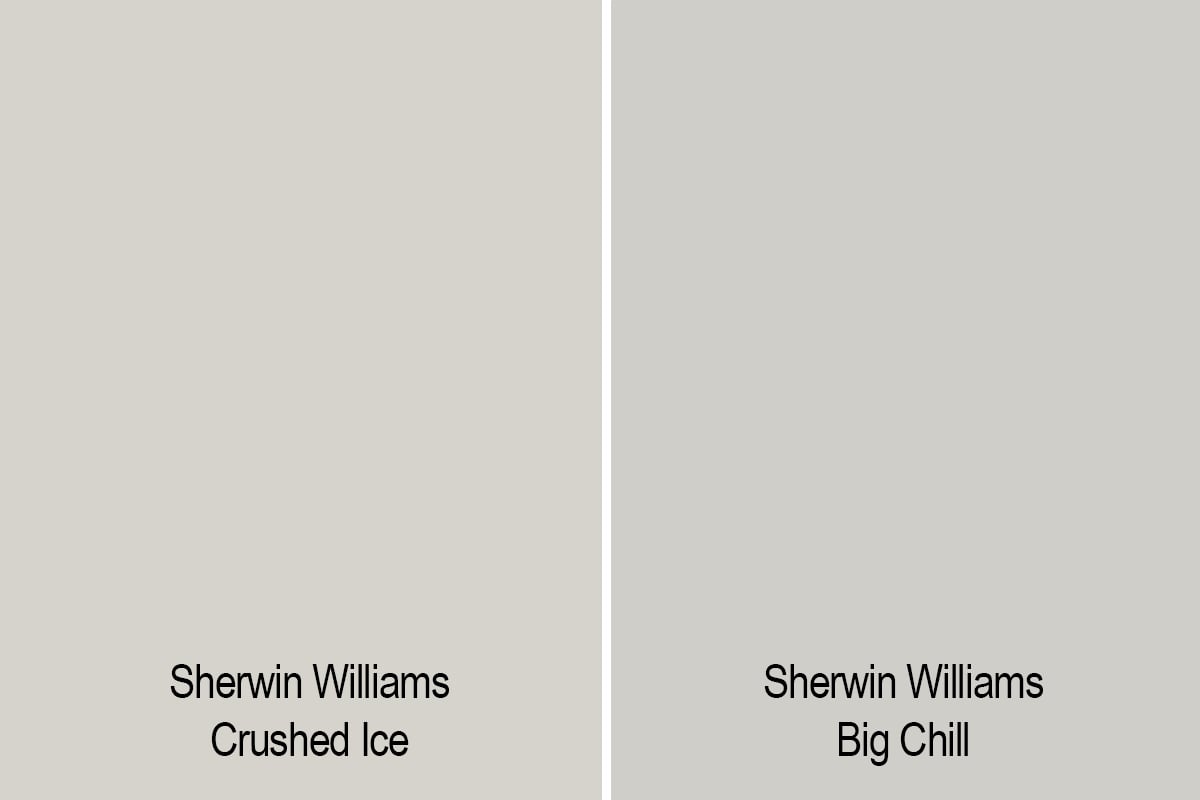
Crushed Ice has a higher LRV of 66, making it slightly lighter and airier compared to SW Big Chill, which has an LRV of around 64. This difference in LRV influences how much light each color reflects and how they feel in a space.
Crushed Ice leans towards warm gray with hints of green, blue, or violet undertones, while Big Chill is a cooler gray with subtle blue undertones. This difference in undertones can affect how the colors appear in different lighting conditions and how they interact with other colors in a room.
SW Crushed Ice vs. SW Silverplate
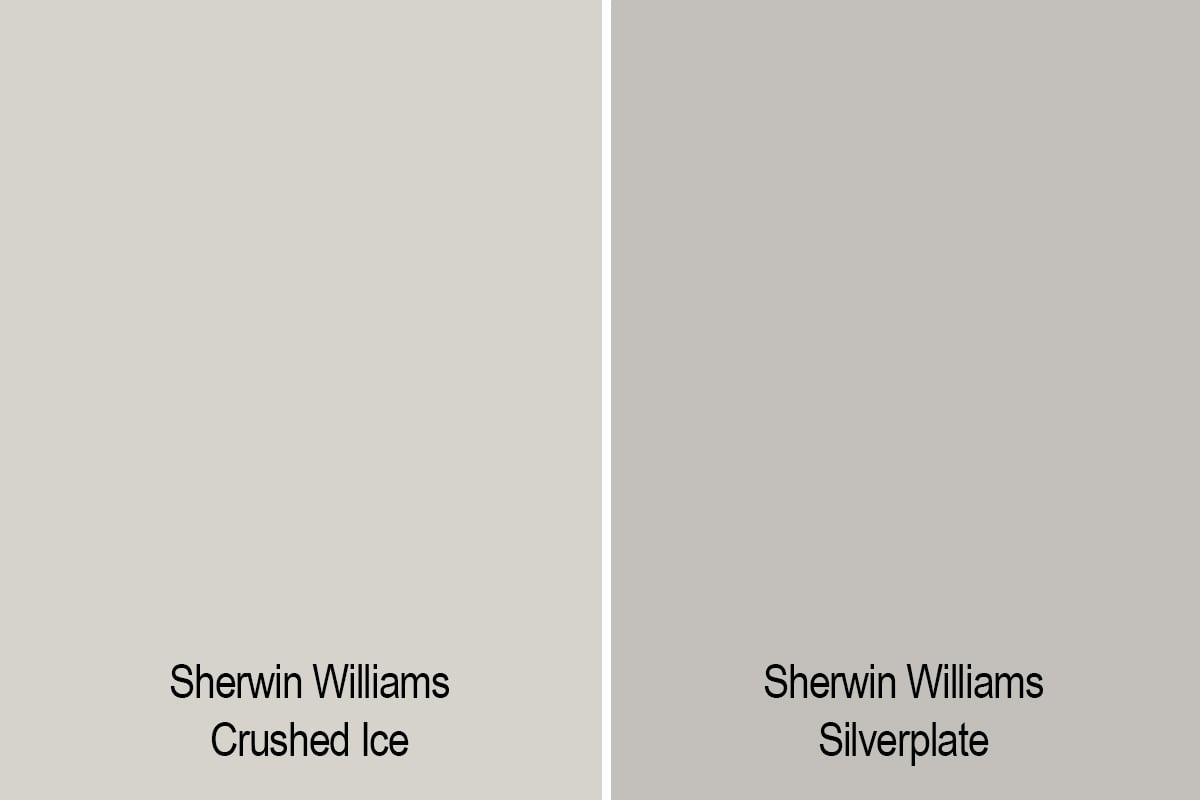
SW Silverplate has an LRV of approximately 53, which makes it notably darker than Crushed Ice. This lower LRV means Silverplate will absorb more light, making it a cooler and more substantial gray that can add depth to a space.
Silverplate is a cooler gray compared to Crushed Ice. It primarily exhibits cool undertones without the warmer, beige or green nuances that are sometimes noticeable in Crushed Ice. Silverplate can project a more neutral to cool presence, making it suitable for spaces where a clean, crisp gray is desired.
Don’t Forget…
Don’t forget – no matter what you’ve read or photos you’ve seen online, it’s really important to sample paint colors in your home before committing!
Samplize provides real paint samples that are easy to move around your home, and cheaper than buying a gazillion paint pots! It’s the only way I buy paint samples.
Frequently Asked Questions
Crushed Ice is considered a warm gray, but it has subtle undertones that allow it to shift depending on lighting. In north-facing rooms, it may appear cooler, while in sunlit or south-facing spaces, it looks softer and warmer.
Crushed Ice has soft green undertones, but it can also flash blue or violet depending on surrounding finishes and lighting conditions. These undertones are subtle and make it more flexible than many other warm grays.
With an LRV of 66, Crushed Ice is light but not close to off-white. In bright rooms, it may wash out slightly. In darker rooms, it can feel a bit flat unless paired with contrast or layered textures.
Yes! Crushed Ice works well as a whole-house neutral because it pairs beautifully with both warm and cool accents. It’s soft enough for bedrooms, refined enough for dining spaces, and flexible enough for open-concept homes.
Is Crushed Ice The Right Color For Your Home?
Sherwin Williams Crushed Ice is an incredibly versatile, flexible gray that can work in almost any room. Whether your style is farmhouse, modern, traditional, or transitional, this color creates a grounded yet airy backdrop that lets your decor shine.
Its adaptability to lighting, subtle undertones, and compatibility with today’s most popular finishes make it a top contender for whole-home color schemes. Just remember to test it before committing!

